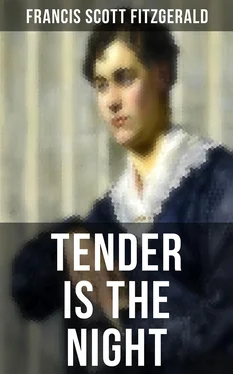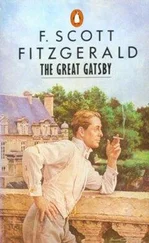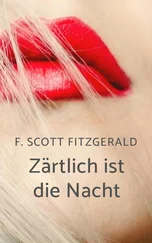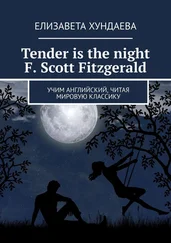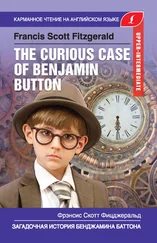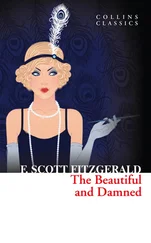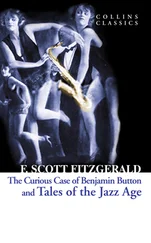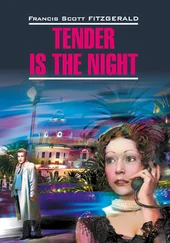Lamarque : ( rising excitedly and walking up and down. ) There we were—four men—three of us poor dreamers—artistically educated, practically illiterate ( he turns savagely to Chandelle and speaks almost menacingly ) Do you realize that I can neither read nor write. Do you realize that back of Francois there, despite his fine phrases, there is a character weak as water, a mind as shallow as—
( Francois starts up angrily. )
Lemarque : Sit down ( Francois sits down muttering. )
Francois : ( after a pause ) But, Monsieur, you must know—I leave the gift of—of—( helplessly ) I can’t name it—appreciation, artistic, aesthetic sense—call it what you will. Weak—yes, why not? Here I am, with no chance, the world against me. I lie—I steal perhaps—I am drunk—I—
( Destage fills up Francois glass with wine. )
Destage : Here! Drink that and shut up! You are boring the gentleman. There is his weak side—poor infant.
( Chandelle who has listened to the last, keenly turns his chair toward Destage. )
Chandelle : But you say my father was more to you than a personal friend; in what way?
Lamarque : Can’t you see?
Francois : I—I—he helped—( Destage pours out more wine and gives it to him. )
Destage : You see he—how shall I say it?—he expressed us. If you can imagine a mind like mine, potently lyrical, sensitive without being cultivated. If you can imagine what a balm, what a medicine, what an all in all was summed up for me in my conversations with him. It was everything to me. I would struggle pathetically for a phrase to express a million yearnings and he would say it in a word.
Lamarque : Monsieur is bored? ( Chandelle shakes his head and opening his case selects a cigarette and lights it )
Lamarque : Here, sir, are three rats, the product of a sewer-destined by nature to live and die in the filthy ruts where they were born. But these three rats in one thing are not of the sewer—they have eyes. Nothing to keep them from remaining in the sewer but their eyes, nothing to help them if they go out but their eyes—and now here comes the light. And it came and passed and left us rats again—vile rats—and one, when he lost the light, went blind.
Francois : ( muttering to himself )—
Blind! Blind! Blind!
Then he ran alone, when the light had passed;
The sun had set and the night fell fast;
The rat lay down in the sewer at last,
Blind!
( A beam of the sunset has come to rest on the glass of wine that Francois holds in his hand. The wine glitters and sparkles. Francois looks at it, starts, and drops the glass. The wine runs over the table. )
Destage : ( animatedly ) Fifteen—twenty years ago he sat where you sat, small, heavy-bearded, black eyed—always sleepy looking.
Francois : ( his eyes closed—his voice trailing off ) Always sleepy, sleepy, slee—
Chandelle : ( dreamily ) He was a poet unsinging, crowned with wreaths of ashes. ( His voice rings with just a shade of triumph. )
Francois : ( talking in his sleep ) Ah, well Chandelle, are you witty to-night, or melancholy or stupid or drunk.
Chandelle : Messieurs—it grows late. I must be off. Drink, all of you ( enthusiastically ) Drink until you cannot talk or walk or see. ( He throws a bill on the table. )
Destage : Young Monsieur?
( Chandelle dons his coat and hat. Pitou enters with more wine. He fills the glasses. )
Lamarque : Drink with us, Monsieur.
Francois : ( asleep ) Toast, Chandelle, toast.
Chandelle : ( taking a glass and raising it aloft ). Toast ( His face is a little red and his hand unsteady. He appears infinitely more gallic than when he entered the wine shop. )
Chandelle : I drink to one who might have been all, who was nothing—who might have sung; who only listened—who might have seen the sun; who but watched a dying ember—who drank of gall and wore a wreath of shadow laurels—
( The others have risen, even Francois who totters wildly forward. )
Francois : Jean, Jean, don’t go—don’t—till I, Francois—you can’t leave me—I’ll be all alone—alone—alone ( his voice rises higher and higher ) My God, man, can’t you see, you have no right to die— You are my soul. ( He stands for a moment, then sprawls across the table. Far away in the twilight a violin sighs plaintively. The last beam of the sun rests on Francois’ head. Chandelle opens the door and goes out. )
Destage : The old days go by, and the old loves and the old spirit. “Ou sont les neiges d’antan?” I guess. ( Pauses unsteadily and then continues. ) I’ve gone far enough without him.
Lamarque : ( dreamily ) Far enough.
Destage : Your hand Jaques! ( They clasp hands ).
Francois : ( wildly ) Here—I, too—you won’t leave me ( feebly ) I want—just one more glass—one more—
( The light fades and disappears. )
( Curtain. )
— ◆ —
Nassau Literary Magazine (June 1915)
The hot four o’clock sun beat down familiarly upon the wide stretch of Maryland country, burning up the long valleys, powdering the winding road into fine dust and glaring on the ugly slated roof of the monastery. Into the gardens it poured hot, dry, lazy, bringing with it, perhaps, some quiet feeling of content, unromantic and cheerful. The walls, the trees, the sanded walks, seemed to radiate back into the fair cloudless sky the sweltering late summer heat and yet they laughed and baked happily. The hour brought some odd sensation of comfort to the farmer in a nearby field, drying his brow for a moment by his thirsty horse, and to the lay-brother opening boxes behind the monastery kitchen.
The man walked up and down on the bank above the creek. He had been walking for half an hour. The lay-brother looked at him quizzically as he passed and murmured an invocation. It was always hard, this hour before taking first vows. Eighteen years before one, the world just behind. The lay-brother had seen many in this same situation, some white and nervous, some grim and determined, some despairing. Then, when the bell tolled five, there were the vows and usually the novice felt better. It was this hour in the country when the world seemed gloriously apparent and the monastery vaguely impotent. The lay-brother shook his head in sympathy and passed on.
The man’s eyes were bent upon his prayer-book. He was very young, twenty at the most, and his dark hair in disorder gave him an even more boyish expression. A light flush lay on his calm face and his lips moved incessantly. He was not nervous. It seemed to him as if he had always known he was to become a priest. Two years before, he had felt the vague stirring, the transcendent sense of seeing heaven in everything, that warned him softly, kindly that the spring of his life was coming. He had given himself every opportunity to resist. He had gone a year to college, four months abroad, and both experiences only increased within him the knowledge of his destiny. There was little hesitation. He had at first feared self-committal with a thousand nameless terrors. He thought he loved the world. Panicky, he struggled, but surer and surer he felt that the last word had been said. He had his vocation—and then, because he was no coward, he decided to become a priest.
Читать дальше
